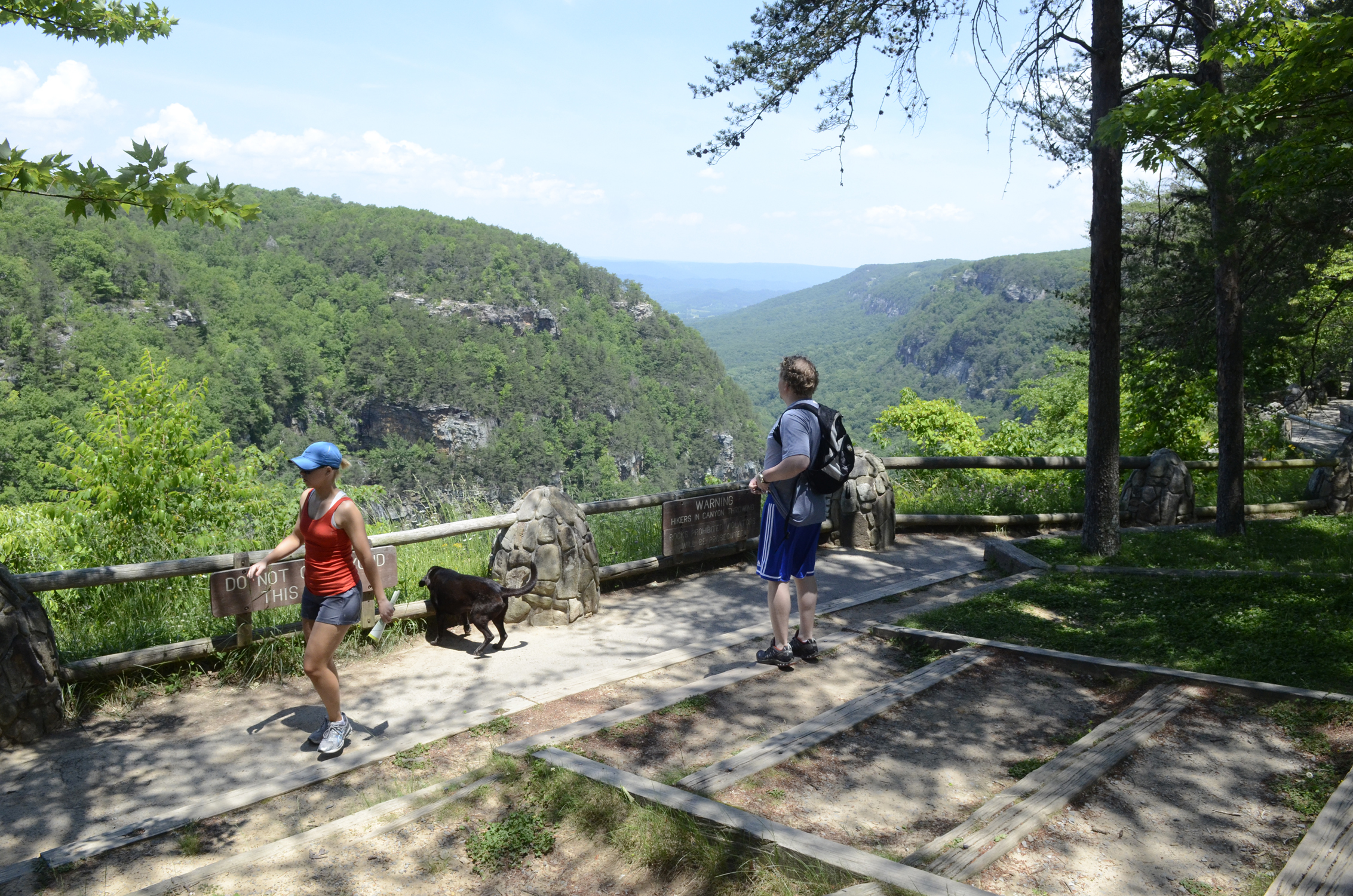PRIVATIZED PARKSGeorgia has privatized the operation of the following state parks that have lodges, golf courses or both:• Amicalola Falls State Park between Elijay and Dahlonega, which has a guest lodge• Unicoi State Park and Lodge in northeastern Georgia• Little Ocmulgee State Park and Lodge and Wallace Adams Golf Course in McRae, Ga., which is about 80 miles southeast of Macon• Georgia Veterans Memorial State Park and golf course in Cordele, Ga., off Interstate 75 about an hour south of Macon• George T. Bagby State Park and Meadowlinks Golf Course in Fort Gaines, Ga., about an hour west of Albany
Cloudland Canyon State Park has a lot to recommend it: 3,485 acres of rugged terrain, miles-long scenic views, cascading waterfalls and a gaping gorge for which the park is named.
Add cash cow to the list.
Georgia's Division of State Parks and Historic Sites is taking a more businesslike approach to its operations since the economic crash of 2008. Since then, the Georgia Assembly halved the park system's funding and instructed it to become self-sustaining.
"It's our new normal," said parks system Director Becky Kelley.
"We've made four of five major reductions in staffing, eliminating hundreds of positions, redefining hundreds of jobs from full time to part time, reducing [parks'] hours of operations," Kelley said.
In its quest to boost the bottom line, the park system this month privatized the operation of five state parks with upscale lodges and golf courses by turning over their management to Coral Hospitality, a Coral Gables, Fla.-based hotel and resort management company.
Cutting costs is half the equation.
The Georgia Assembly wants the parks system to pay its own way -- a far cry from covering 50 percent of its expenses in 2002 when Kelley took over as parks director.
"No one's ever told me the target percent," Kelley said. "They've told me to pursue a strategy of self-sufficiency."
Now, every state park and historic site has to develop a business plan with strategies for enhanced cost recovery and revenue generation.
This month, Cloudland Canyon officials held a public meeting to solicit revenue-generating ideas. The park may let concessionaires sell firewood, food and drink, lead cave tours and guide backcountry horseback rides.
Cloudland Canyon isn't exempt from the exercise -- even though as one of Georgia's most popular state parks, it's a money-maker.
"This park is more than self-sufficient," Cloudland Canyon's Park Manager Bobby Wilson said. "We're taking in one-and-a-half times what we're costing."
The parks system would like its popular, profitable parks to become even more so to help subsidize parks and historic sites that, because of their remoteness or strictly historic appeal, will never break even.
"We make them [profitable], and those parks help support the other facilities," Kelley said.
Balancing act
One balancing act for the parks system is cutting costs while keeping parks attractive for visitors.
Cloudland Canyon had 13 full-time employees in 2009 when Wilson took over as park manager.
"There's six of us [now]," he said.
Cloudland Canyon's interpretive center -- a building stocked with nature books, cozy chairs and native snakes housed in aquariums -- is open only on weekends. Its once full-time naturalist now works seasonally, part time.
Friends of Georgia State Parks and Historic Sites is a nonprofit organization based in Cartersville that has more than 50 local chapters that typically funded special programming to help attract visitors, such as bluegrass concerts at Red Top Mountain State Park near Cartersville and buying food for birds of prey displayed in "Close Encounters of the Bird Kind," an educational program at Amicalola Falls State Park.
In this time of cutbacks, however, the friends' groups are covering more mundane costs, said Damon Kirkpatrick, director of operations and development for the organization.
For example, when the interpretive center at Tallulah Gorge State Park needed to replace its fire sprinkler heads, Kirkpatrick said, the friends group there ponied up about $22,000.
"Parks didn't have the money to do it, and we did," he said. "That's the kind of thing you would expect to have state funding."
Kirkpatrick can understand why the Georgia Assembly is looking toward state parks and historic sites parks to fund themselves -- they're one of the few state agencies that can be run like a business.
"Parks are kind a unique beast, when it comes to state government," he said, adding, "My opinion is, some state funds will always be required."
Another cost-cutting measure in the works is the elimination, by 2018, of 80 park rangers who are authorized to carry firearms through the Georgia Peace Officers Standards and Training Council. They'll be absorbed into a new law enforcement division through the state Department of Natural Resources, which is over the parks system.
Kelley is mindful of needing to keep parks attractive while cutting costs.
"That's the magic question," she said. "We want to be sure that we haven't diminished the experience. If we've cut too deep, then we'll hear about it."
Contact staff writer Tim Omarzu at tomarzu@timesfreepress.com or 423-757-6651.

